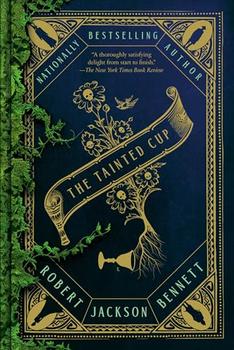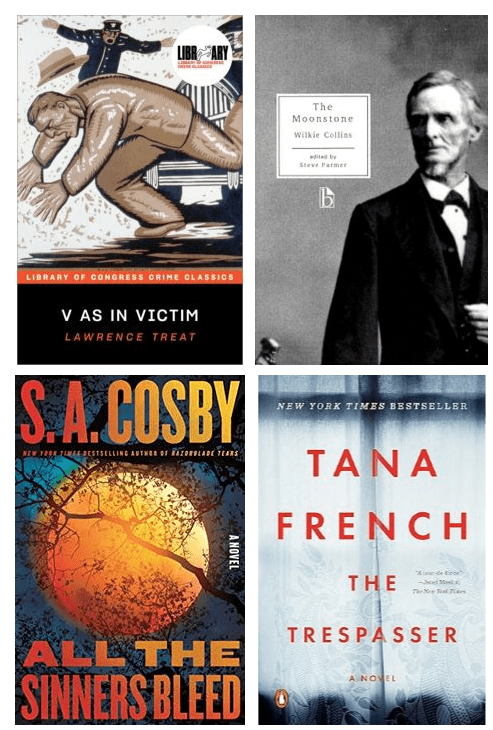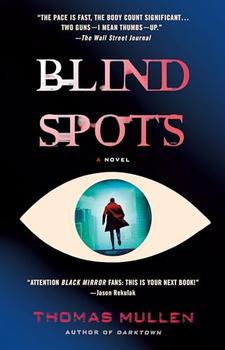Summary | Excerpt | Reading Guide | Reviews | Beyond the book | Read-Alikes | Genres & Themes | Author Bio

A Holmes and Watson–style detective duo take the stage in this fantasy with a mystery twist, from the Edgar-winning, multiple Hugo-nominated Robert Jackson Bennett
In Daretana's greatest mansion, a high imperial officer lies dead—killed, to all appearances, when a tree erupted from his body. Even here at the Empire's borders, where contagions abound and the blood of the leviathans works strange magical changes, it's a death both terrifying and impossible.
Assigned to investigate is Ana Dolabra, a detective whose reputation for brilliance is matched only by her eccentricities. Rumor has it that she wears a blindfold at all times, and that she can solve impossible cases without even stepping outside the walls of her home.
At her side is her new assistant, Dinios Kol, magically altered in ways that make him the perfect aide to Ana's brilliance. Din is at turns scandalized, perplexed, and utterly infuriated by his new superior—but as the case unfolds and he watches Ana's mind leap from one startling deduction to the next, he must admit that she is, indeed, the Empire's greatest detective.
As the two close in on a mastermind and uncover a scheme that threatens the Empire itself, Din realizes he's barely begun to assemble the puzzle that is Ana Dolabra—and wonders how long he'll be able to keep his own secrets safe from her piercing intellect.
By an "endlessly inventive" (Vulture) author with a "wicked sense of humor" (NPR), The Tainted Cup mixes the charms of detective fiction with brilliant world-building to deliver a fiendishly clever mystery that's at once instantly recognizable and thrillingly new.
In many respects it's a standard police procedural – a crime is committed, the authorities collect evidence and interview suspects, the criminal is caught. Every other aspect, however, is wholly unexpected, from the choice of murder weapon to the deductions made by Din and Ana to the ultimate revelation of the guilty party. Bennett liberally peppers the story with red herrings, too, keeping readers guessing from start to finish. And, of course, there's the intriguing pairing of the book's two protagonists. Some have compared them to Holmes and Watson, and while there's rationale for that (Ana certainly has that Sherlock Holmes vibe about her), I find Din a much more interesting and more active participant than Watson ever was. The secondary characters aren't as developed as I would have liked, with most coming across as one-dimensional. And some stylistic choices should have been rethought. Certainly, these flaws grated at times, but I enjoyed the mystery so darned much that it still earns my highest recommendation...continued
Full Review
 (670 words)
(670 words)
(Reviewed by Kim Kovacs).
 As most will know, a mystery novel is one that starts off with a conundrum – someone has been killed, something or someone has gone missing – and proceeds along a logical path until the puzzle is solved, generally with plot twists and red herrings along the way. There are many variations on this theme, and consequently many subgenres have cropped up over the decades since mystery novels first appeared, with an often-cited early English-language example being Wilkie Collins' 1860 work The Woman in White. These include:
As most will know, a mystery novel is one that starts off with a conundrum – someone has been killed, something or someone has gone missing – and proceeds along a logical path until the puzzle is solved, generally with plot twists and red herrings along the way. There are many variations on this theme, and consequently many subgenres have cropped up over the decades since mystery novels first appeared, with an often-cited early English-language example being Wilkie Collins' 1860 work The Woman in White. These include:

If you liked The Tainted Cup, try these:

by Francis Spufford
Published 2025
From "one of the most original minds in contemporary literature" (Nick Hornby) the bestselling and award-winning author of Golden Hill delivers a noirish detective novel set in the 1920s that reimagines how American history would be different if, instead of being decimated, indigenous populations had thrived.

by Thomas Mullen
Published 2024
A riveting crime novel with a speculative edge about the ways our perceptions of reality can be manipulated.